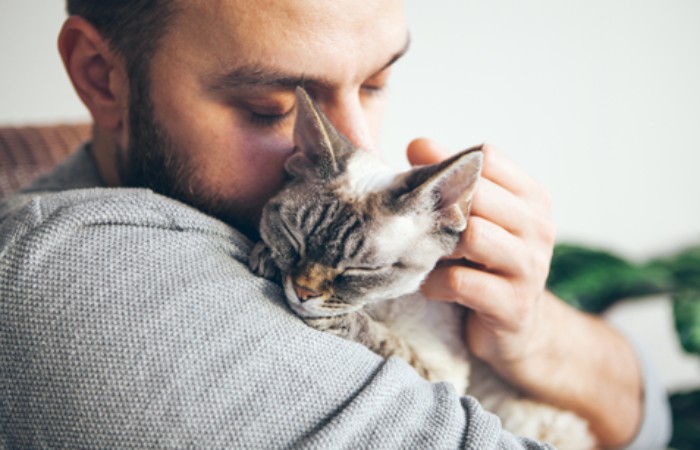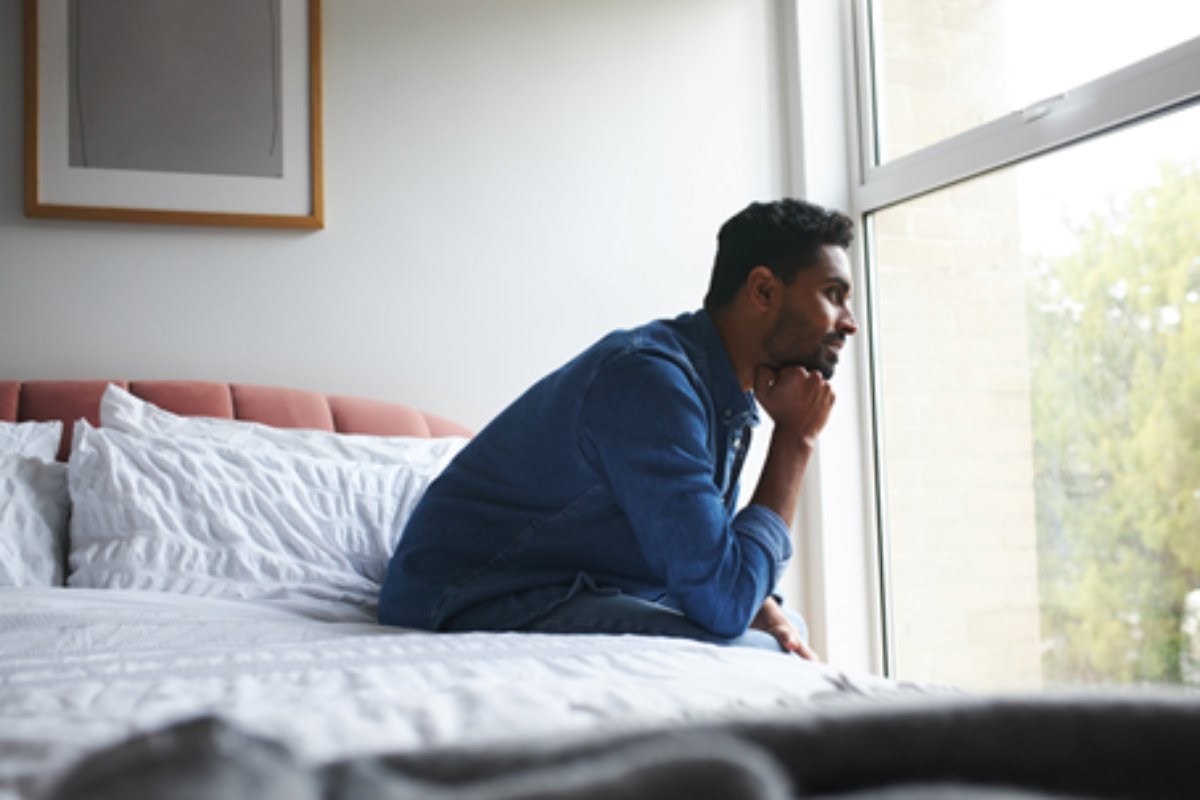A hug from a friend. A handshake from a colleague. The gentle caress of a lover’s hand. Most people take these everyday touches for granted. But the past year and a half of social distancing has made clear what scientists have known all along: humans desperately need physical touch in their lives. When a person goes too long without physical touch, they can begin to suffer the negative psychological effects of something called touch starvation.
While touch starvation may sound like a made-up affliction, the crushing loneliness, depression, and anxiety associated with it are all-too-real. According to WebMD, being touch-starved can also negatively impact a person’s physical health by increasing blood pressure, muscle tension, and breathing rate.
Thankfully, there are many ways to cope with touch starvation, including weighted blankets, massage therapy, and brushing therapy. But first, let’s briefly explain what touch starvation is and how to know if you’re experiencing it.
Table of Contents
What Is Touch Starvation?
Touch starvation — also known as touch hunger, skin hunger, or touch deprivation — is an innate longing for physical contact from other living beings. This longing is typically most pronounced after being socially isolated for an extended length of time.
During the pandemic, many people went months — maybe even the entire year — without physically touching anyone. While this may be the most recent example of touch starvation, some experts say our society was seriously touch-deprived even before the pandemic.

Touch starvation seems to be more common in countries with low-contact cultures such as the United States, Britain, Canada, Australia, and Asia. Research also suggests that touch starvation is more prevalent in men than women, likely owing to the cultural view that physical touch is effeminate.
But why is it bad for people to avoid human touch, anyway? As it turns out, touch has a massive impact on our mental and physical well-being. Positive physical contact, whether it’s a hug, a massage, or a pat on the back, increases levels of oxytocin, the “cuddle hormone” that makes you feel relaxed and loved.
In contrast, going too long without physical touch can leave you feeling alone, depressed, and disconnected from others. This can contribute to a slew of mental and physical health problems, including mood and anxiety disorders, poor sleep, and even a higher risk of infections.
Are You Being Touch-Starved? 5 Common Signs of Touch Starvation
Missing out on human touch can have serious and long-lasting effects on your health and well-being. So, how do you know if you’re being touch-starved? Here are a few common indicators that you’re craving human touch.
1. Heightened Feelings of Sadness
Have you been feeling sad and can’t seem to figure out why? Many things can contribute to depression, but touch starvation is a big one. Positive touches such as hugging, hand-holding and back massages trigger the release of endorphins, making us feel happy and helping us ward off feelings of sadness. Without regular human touch, it’s easy to feel alone, disconnected and hopeless.
2. Stress
If you’ve been feeling extra stressed lately, touch deprivation may be to blame. Human touch, whether it’s your own touch or someone else’s, is a powerful stress-reliever. Indeed, hugging and other positive forms of touch have been shown to ease stress and promote relaxation by reducing cortisol (the stress hormone) levels in the body.
3. Difficulty Sleeping
Can’t stop tossing and turning in bed? When you don’t get the stress-relieving benefits of human touch, anxiety can build up over time and make it impossible to get a good night’s rest.
If you’re struggling to get a good night’s sleep due to stress, consider winding down for bed in a weighted bathrobe or a weighted blanket. Weighted products such as these work by applying gentle pressure to the body, promoting a sense of calm and relaxation.
4. Poor Self-Esteem
Physical touch, whether it’s a pat on the back or a hug from a partner, is often validating on some level. When we’re touched affectionately by a friend or a lover, it boosts our confidence and makes us feel better about ourselves. In fact, research shows that couples who received more touch from their partners while talking about their stressors reported higher self-esteem.
5. Fear of Attachment
Perhaps a more surprising sign of touch starvation is a tendency to avoid forming strong attachments to other people. This may be caused by the fear or anxiety of being intimate with someone after an extended length of time without touching.
How to Cope with Touch Starvation
The pandemic isn’t the only cause of touch starvation. Better technology, smaller household sizes and increased human longevity are also contributing to our touch-deprived society.
If you feel like you’re missing out on human touch, but can’t easily hug your friends or family. Here are a few ways to experience the touch you crave:
- Touch a pet. Although patting a furry friend can’t replace the need for human touch, it can go a long way in easing loneliness, stress, and other symptoms of touch starvation. If you don’t have a pet of your own. Consider volunteering at an animal rescue or shelter.

- Get a massage. On top of providing human touch, massage therapy helps lower stress and ease muscle tension. Can’t afford to get a professional massage? Give yourself a neck or temple massage with calming essential oils, like lavender or eucalyptus.
- Use weighted products. Using weighted blankets, bathrobes, vests and other weighted products stimulates the production of oxytocin. Potentially delivering the same feel-good response that happens when you’re embraced by a friend or loved one. Just make sure that you choose the right weight. For weighted blankets, the general rule of thumb is 10 percent of your body weight.
- Try brushing therapy. Commonly used in sensory therapy programs, brushing therapy involves brushing the body with a sensory brush throughout the day to help decrease anxiety and fear of being touched.
- Sleep with a body pillow. In addition to reducing back pain and relieving pressure points, sleeping with a body pillow can make you feel less alone in your bed. Plus, it encourages you to sleep on your side. Which is one of the more healthy ways to sleep.
Out of all five of the senses, touch seems to be the most overlooked and neglected. But as many of us have come to find out, the human touch is more important than we think. If you can’t get a hug or a pat on the back from friends and family. Try these tips to help you get back to a state of calm and relaxation.






